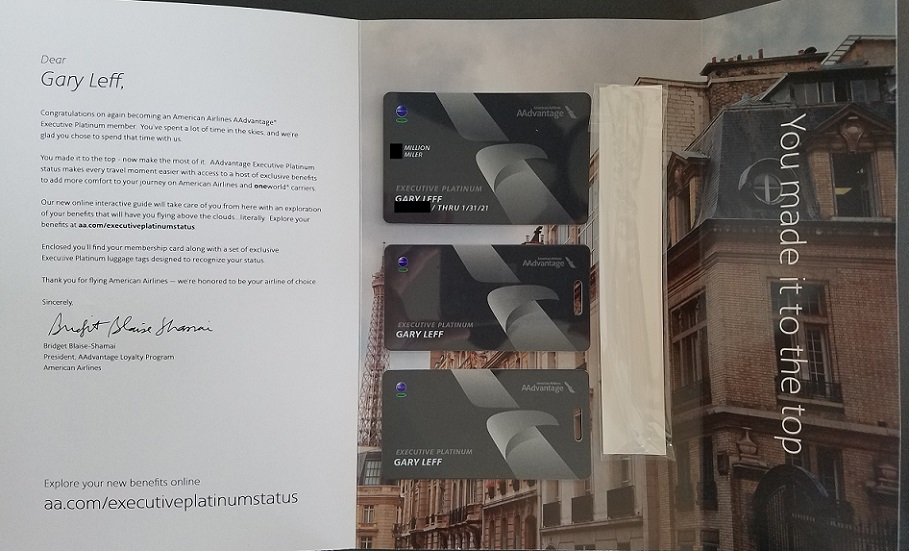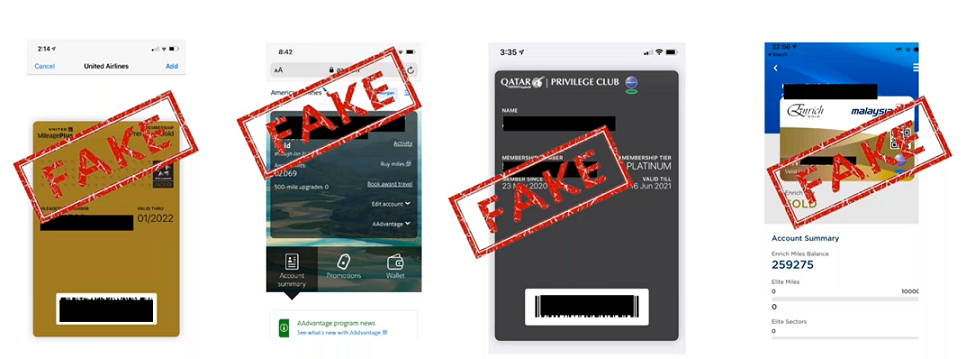The Loyalty Security Association which fights frequent flyer fraud hosted a discussion with Mark Ross-Smith who provides status match outsourcing services (StatusMatch.com ‘status match as a service’) to airlines (and used to run the Malaysia Airlines Enrich program).
Loyalty programs are wasting opportunities to attract good customers, but with hotels at low occupancy and more airline seats than customers competition for elite members is going to become more fierce. Enter the status match. Loyalty programs are going to want to make sure they don’t become too expensive (offering benefits to people who do not become customers) and aren’t the victims of fraud (there are new techniques to fight status match fraud).
Status Match Campaigns Have Huge Potential But Many Are Handled Badly
Ross-Smith thinks that campaigns to attract a competitor’s best customers are a great idea. Status challenges, rather than matches, are useful to ‘lock in’ customers. They get members on a treadmill to earn the status, getting them used to interacting with the brand. And they prevents competitor from poaching the poached customers, too, while they’re working on challenge requirements.
- Status match customers have a high propensity to take up the co-brand credit card quickly. They can be very profitable customers but marketing needs to be aligned to where they are in the program.
- And programs that give a status match but not a boost towards reaching the next status level are actually pushing customers away. Giving someone Gold status, but not 25,000 qualifying miles as a head start towards Platinum, is a lost opportunity to get them to strive for the next level.
However most airlines do status match programs badly. They take too long to respond – a customer sends in a statement and card copy, and then wait weeks to hear back. When a high value customer raises their hand and says they want to give their future business, waiting weeks to get back to them is a bad idea.
Newer And Smaller Programs Benefit More From Matches Than Challenges
The recent Frontier Airlines status match is an example of an offer his team ran. While he does like challenges for many programs, newer programs or those without extensive partnerships and lounges don’t have as much to offer and don’t have built-in costs for products they’re delivering (like a lounge network). Customers do like straight matches better, but they can be expensive if customers are just using it to gain lounge access.
Who Pays For Airline Lounge Access When a Matched Elite Visits?
On the cost of lounge access for status matched customers, Ross-Smith shared that how much ‘matching fraud’ costs an airline depends on airline lounge agreements.
The Loyalty Security Association co-founder doing the interview suggested that lounge costs “usually [fall on] the operating carrier” rather than the frequent flyer program (so a LATAM elite visiting an American Airlines lounge wouldn’t mean LATAM gets charged for the visit).
Ross-Smith though notes that there are alliance caps on gifted status – so if an airline does a lot of matching or other status comping, they can start to see bills.

How People Fake Their Credentials For Status Matching, And How Programs Have Started Fighting This
It’s easy to photoship elite cards and edit member statements, take a screen shot or use a .pdf editing tool. StatusMatch.com reports testing fakes to various programs and having a 100% success rate with edited documents. Some may show status higher than what the member really has. Others take an elite member’s credentials and change the name. Or they might add flight or hotel stay activity to meet the minimum requirements a program has in place for a match.
StatusMatch.com though is checking the authenticity of documents. They check for correct fonts, image quality, and even file names (believe it or not people sometimes title their files “delta screen shot copy version 2 edited.png” and then hit submit).

When they ran the Frontier match data was checked against Frontier’s blacklist; their own global status match lists; that the member was submitting from an approved region (IP check); VPN check; use of proxy networks; and historical applications. They also processed status upgrades in as little as 2 minutes in some cases, so they’re not slowing down the process since delivering status promptly is key to winning the customer’s business.
Interestingly as they run more status match campaigns they also get a window into what members are engaged in match chains (think Best Western to Wyndham to Caesars to MGM to Hyatt) and can block a match.
This sort of data sharing isn’t new, though it’s new to have it all in one place. United Airlines will sometimes check with a competitor to validate your elite status when you ask for a match, and share information for the same purpose. They must think stopping fraud is better for them than helping competitors steal their customers, and vice versa. Hyatt and Starwood hotels had a similar arrangement a little over a decade ago.
There’s also status fraud in other ways, of course. Ross-Smith reports running a test with two oneworld airlines and found that frequent flyer numbers could be used without name matching – put someone’s elite number on another passenger’s reservation and fly with that person’s status (while helping that person earn miles).


All of these programs have detailed personal data about all of us so they know who to target if they really want to. They could just create a shared database containing only account ids (#s not email) and status level and how it was earned, maybe last date flown/stayed and use that to confirm elite level.
An anonymous account id wouldn’t give anything away to a competitor or an intermediary and is all you really need to confirm eligibility.
It’s easy enough to hack html/css to make your profile page look like it has elite status, photoshopping it with the wrong fonts seems like you’d just catch the dumb ones.
All this other stuff seems like vendor marketing. Surprised they didn’t resort to saying it’s built on blockchain.
Drats, my plan to forge AA ConciergeKey membership have been foiled. I hate it when that happens.
Should these companies be concerned that their actions in the name of security may come across as a form of illegal collusion, of facilitating illegal collusion in an industry or of being an illegal privacy invasion in some jurisdictions?
@GUWonder, Why would they be concerned with that? If a person willingly puts ‘their’ presonal information forward to be reviewed, it would be foolish for the company to not do its due diligence on the validity of the documents in question.
There are legal ways of doing “due diligence” and then there are ways of doing “due diligence” which may be not truly “due diligence” and may be arguably illegal in some places.
I totally agree. Those “law abiding citizens” are the ones ordering fake Covid vaccination cards and fake status. We need a database that can be shared by all entities for verification.